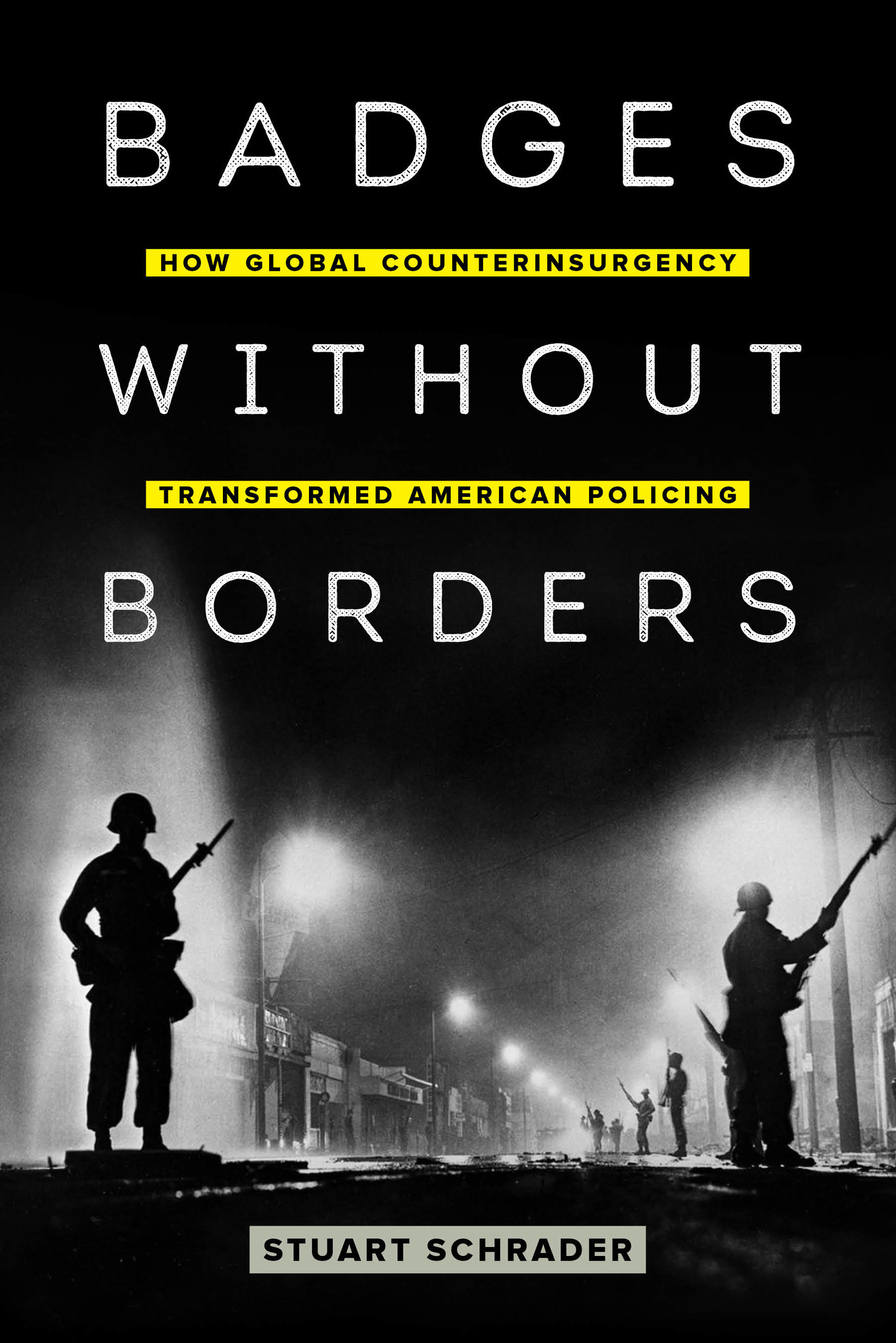Berger: Your book describes American policing as a form of counterinsurgency, developed in battles against radical and unruly populations globally — including Black Americans. How did Black freedom movements become the subject of counterinsurgency, and how did they respond?
Schrader: Black freedom movements alarmed counterinsurgency experts for a few reasons. First, Black radicals explicitly invoked guerrilla warfare. Invocations occurred more frequently than actual operations, however. In some new work, I’m examining how the very concept of “urban guerrilla warfare” was a co-production of both Black radicals and security experts, who were reading and responding to each other. Second, Black radicals built networks across borders. Left-wing leaders like Mao Zedong and revolutionary groups like South Vietnam’s National Liberation Front paid attention to the Black freedom struggle and declared solidarity with it, much as groups like the Black Panther Party pledged support for these and other national liberation movements. These connections terrified counterinsurgency experts. Their great fear was that Cuba, China, and the Soviet Union would share resources with Black freedom organizations. Third, Black and other anti-imperialists resisted police repression, including by revealing how it worked and sharing their testimony internationally. An anti-imperialist counter-public sphere emerged in part as a response to the international spread of techniques of repression that the book examines.
Altogether, counterinsurgency experts responded in at least three notable ways. First, they analogized Harlem and Saigon, for example, developing counterinsurgency training and techniques applicable to both. Second, many counterinsurgency experts tried to walk a fine line of invoking the specter of a global movement of left-wing radicalism, anti-imperialism, and anti-racism while avoiding explicitly racist language in the process, as I suggested. By acceding to the demand to lessen the appearance of bigotry, they fostered ideological commonalities across borders, summoning and even confirming the existence of an anti-racist international. Finally, counterinsurgency experts simply relied on familiar forms of US policing, which had long been honed in social control of African American people and movements. As much as they may have wished they could create a universal police science to diffuse across the globe to contain communism, they were universalizing a set of policing practices whose genealogy was slavery, settler genocide of native peoples, labor repression, and Jim Crow.
